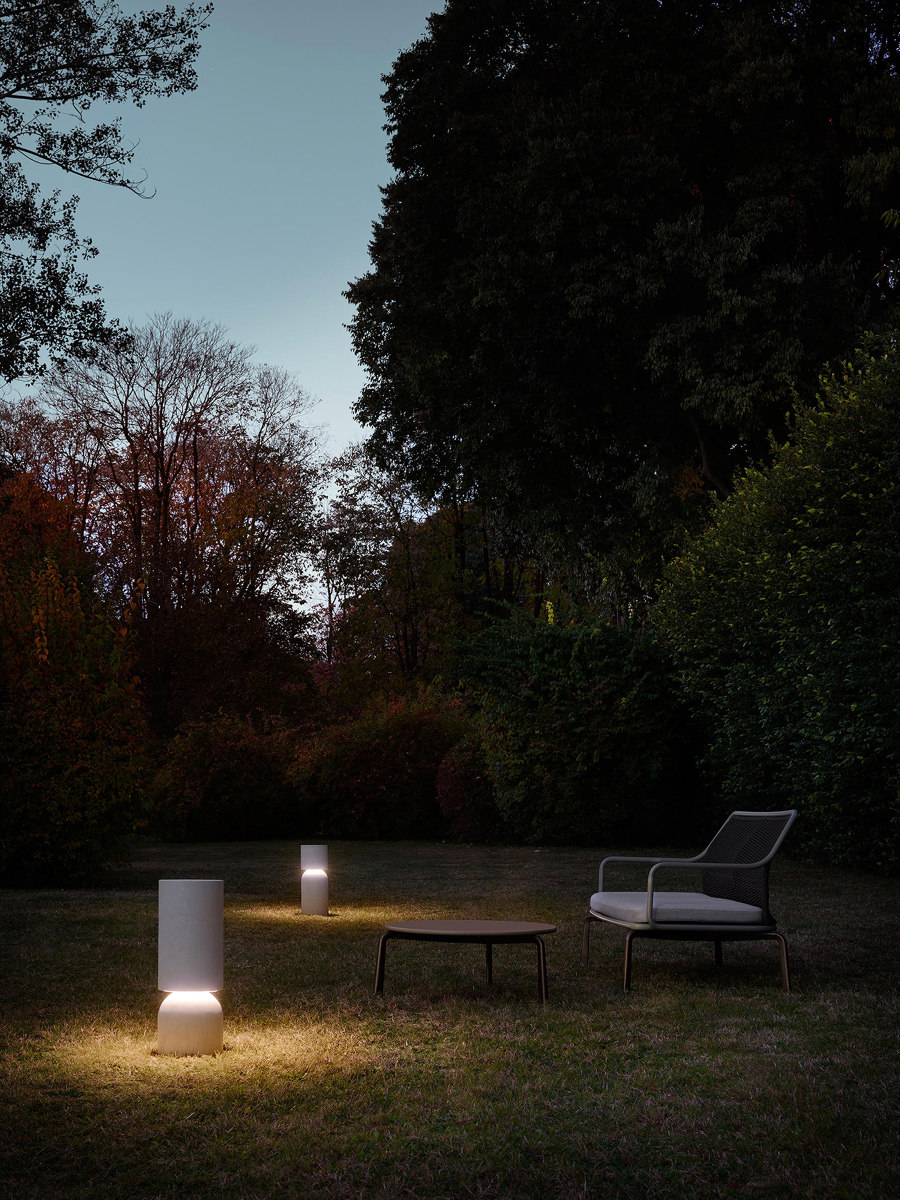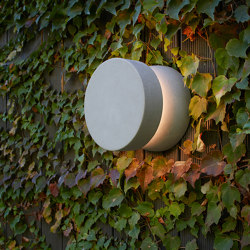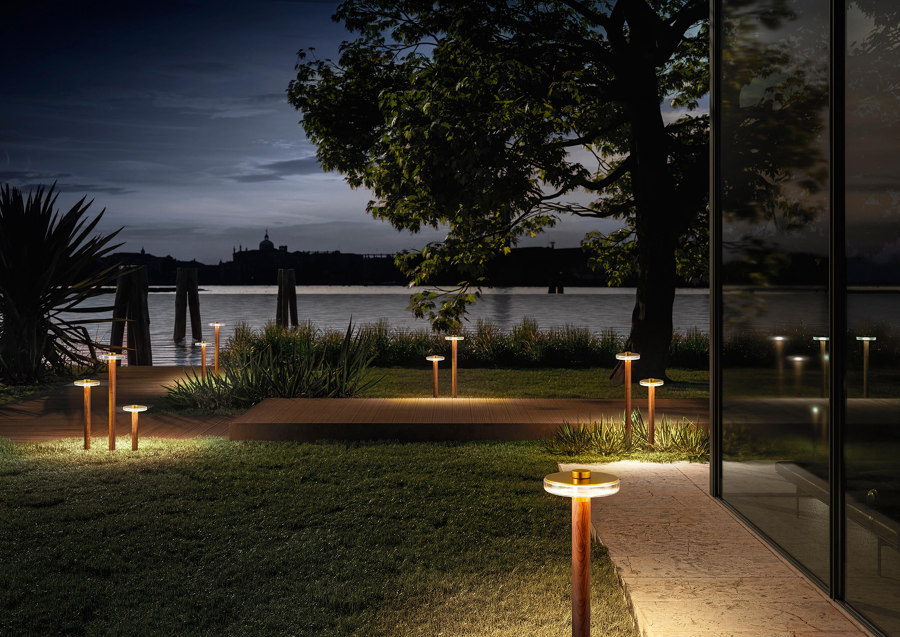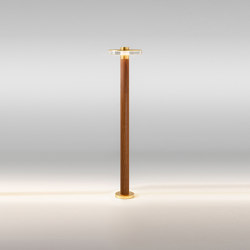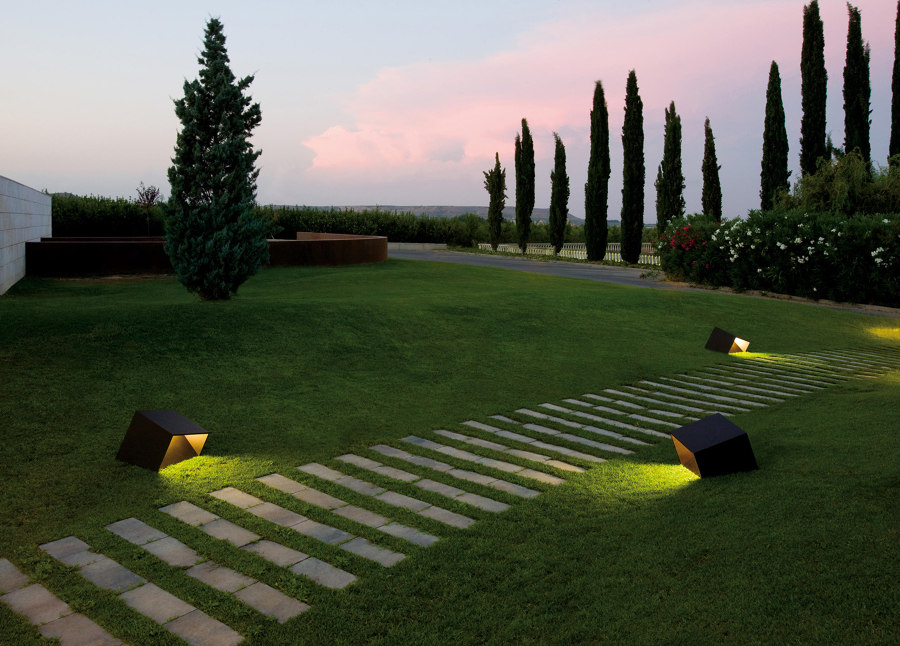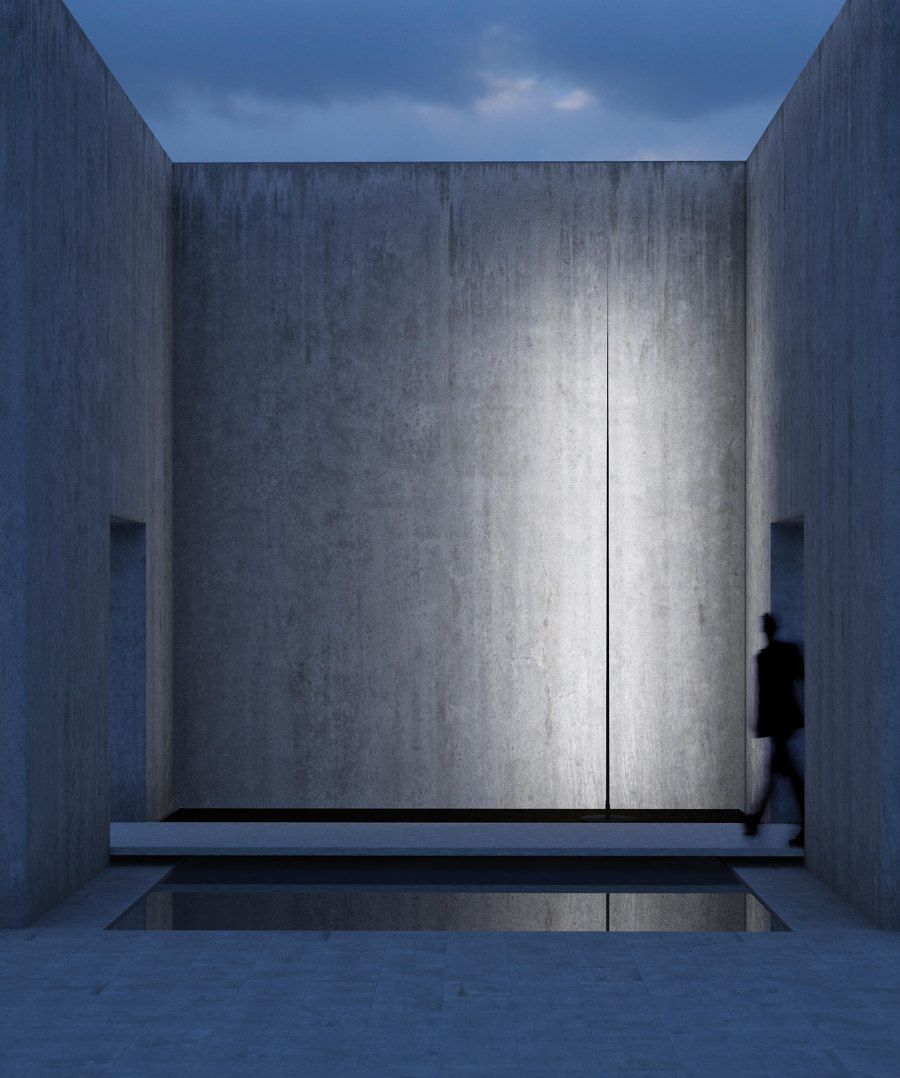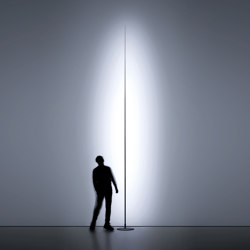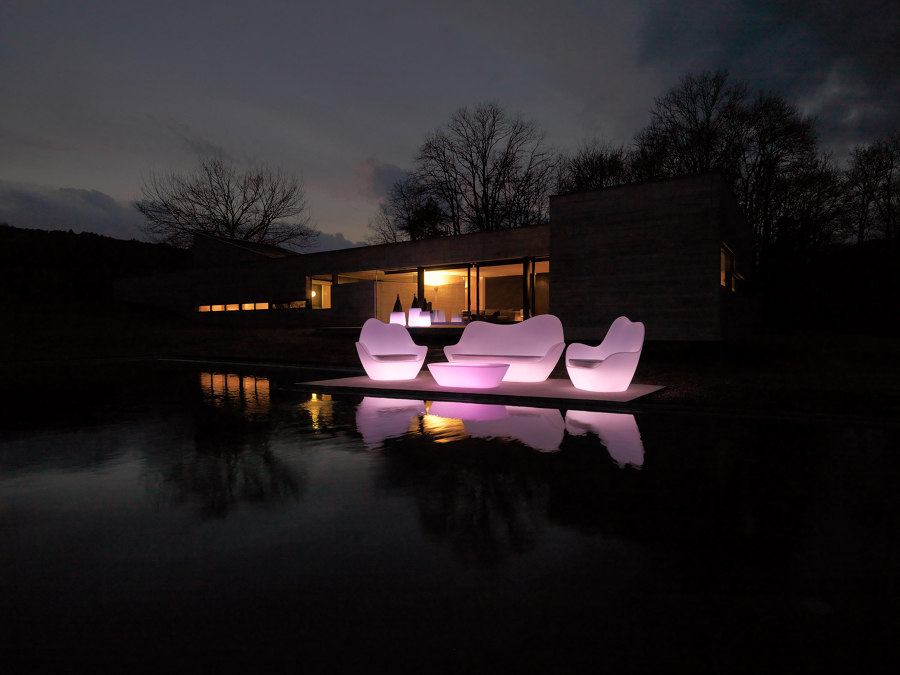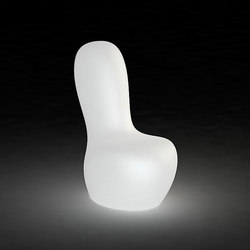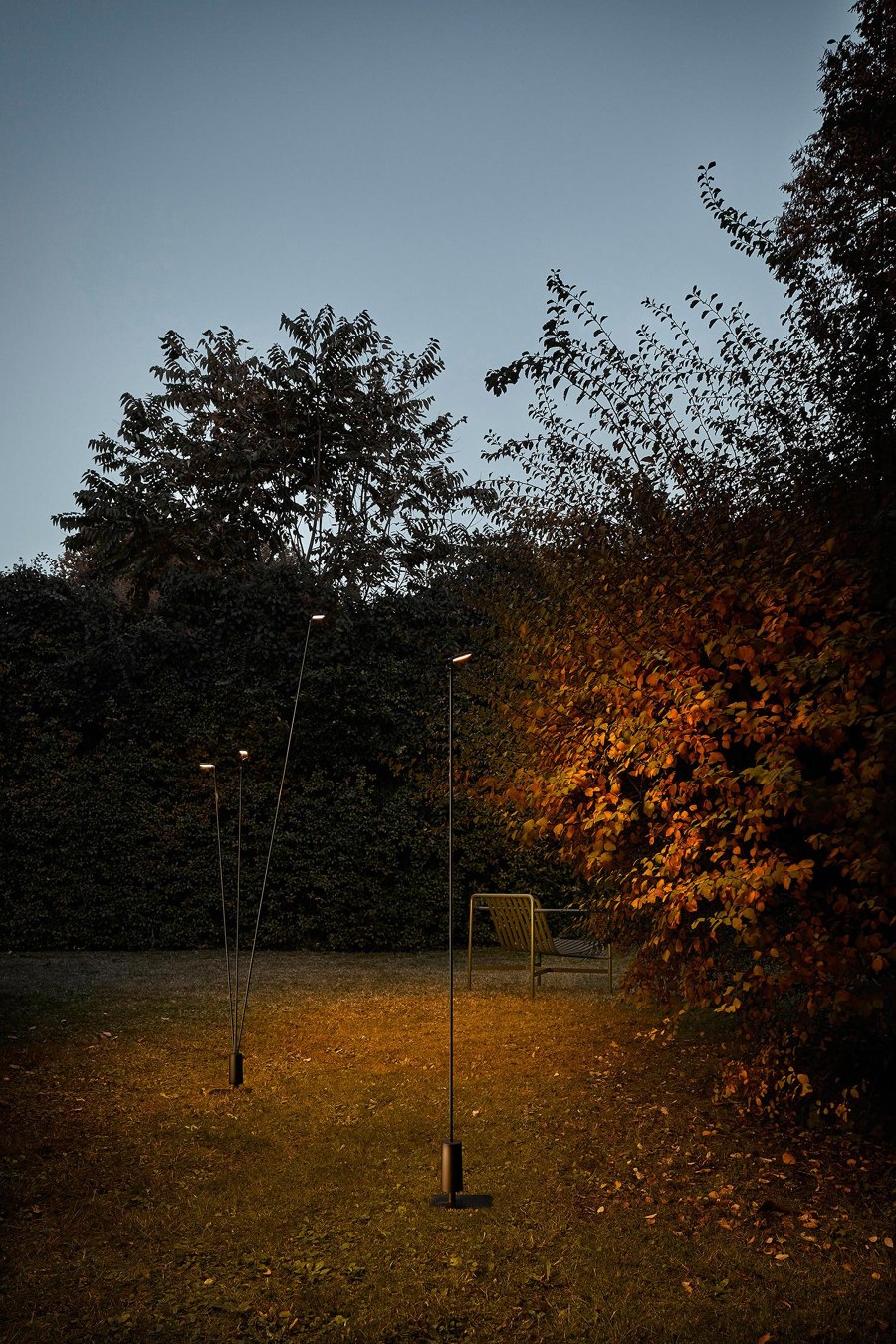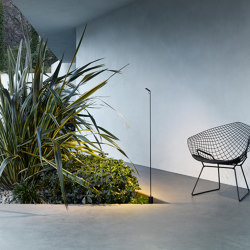Luminous design pieces: how to artistically light a garden
Text by Peter Smisek
21.07.23
Today's lighting trends go beyond simple fixtures and create sculptural pieces in their own right, lighting exterior spaces in a multitude of exciting ways.
Outdoor lighting not only extends the use of external spaces in the warmer months, but can also highlight and transform different aspects of their design. Like interior lighting, outdoor lighting schemes should find a balance between different categories of lighting. And today, the proliferation of warm light LEDs means that energy-efficient designs can also offer the soft tonality of earlier technologies. Unlike offices or homes, outdoor spaces do not need to be evenly lit throughout – whether parks or private gardens, dramatic contrasts of light and shadow can often enhance the design of a project.
At a functional level, it is important to map out paths between different areas, so as to provide the appropriate level of lighting and ensure that spaces are navigable. A good level of constant lighting in areas of the highest traffic and use is crucial, from a safety perspective. Panzeri's Venexia, inspired by the wooden piles that guide Venetian maritime traffic, offers a sophisticated option in wood and brass. For a more contemporary look and strong illumination, LYX Luminaires' SOLAR pathway light | TEE punctuates spaces and architectural or landscape features using a strong, modern form. Each individual luminaire incorporates a solar cell, which means these lights do not need an external power source.
Taking a more robust, sculptural approach, Break 4107 Outdoor by Vibia is a path light that appears embedded into the surface of the path and provides strong directional lighting in an angular, minimalist way. An even more discrete solution is to embed spotlights, such as LEDS C4-manufactured KAY into the paving itself. As well as illuminating pathways, the integrated lights do not present any trip hazard, ensuring safety for all users.
Vertical surfaces can also benefit from lighting. Single lights can provide spot accents, while a cluster can provide even lighting over large surfaces. Nui, a contemporary outdoor lighting family by LUCEPLAN offers cylindrical wall luminaires, as well as lighting bollards, allowing the creation of a unified, coherent lighting scheme throughout. For a more dramatic effect, Davide Groppi's almost 5-metre-tall Origine eschews traditional fixtures in favour of a freestanding pole, casting a strong ambient glow across nearby architectural features.
Among some of the more unusual ways to illuminate outdoor space are statement lights. Some, such as Vondom's Sabinas lamp series, combine novelty with functionality, consisting of internally illuminated armchairs, sofas and tables, which provide luminescence for more social events. The Ex Moon on the other hand, by IN-ES.ARTDESIGN, is a glowing sculpture reminiscent of the lunar orb. For something more abstract, the Cameron Design House-made Kasvaa is a metallic sculpture in its own right, the illumination of which enhances its artistic properties.
Another way to make a statement is using oversized versions of indoor lights – these can provide an unusual, surreal touch to any scheme, while also providing a centrepiece for conversation and meeting places. Sutra | Horizontal Torch by EGO Paris, for instance, looks like an abstract table lamp and a gigantic scale. Tolomeo XXL by Artemide Architectural, on the other hand, is a large-scale version of the original articulated lamp. Just like the iconic table-top version, the position of the light can be adjusted to suit the occasion.
In the last few years, the miniaturisation of light sources such as LEDs has also allowed designers and manufacturers to create more slender, organically inspired luminaires. One such naturalistic design is LUCEPLAN's Flia, in which a metal base supports between one and three carbon fibre stems. A compact aluminium head holds the light source, creating a delicate, swaying lamp. Dexter's REED is a similar, if even more abstracted natural design. Here, individual fiberoptic rods with luminous tops provide a gentle, dimmable light that can be integrated within herbaceous borders, flowerbeds and other vegetation.
© Architonic
Head to the Architonic Magazine for more insights on the latest products, trends and practices in architecture and design.
